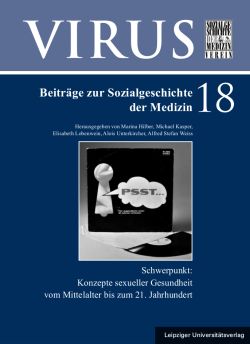
VIRUS Band 18, pp. 247-264, 2020/07/09
Konzepte sexueller Gesundheit vom Mittelalter bis zum 21. Jahrhundert

With the emergence of AIDS in the mid-1980s, both media and politics were quick to offer a public discourse, that caused a tangible sense of threat within wide sections of the population. Moreover, it called into question the sexual liberation of the 1960s and 1970s. This article seeks to build on the aforementioned discourse as a basis to further examine the extent to which the emergence of AIDS actually affected the sexual morality of the citizens of the Federal Republic of Germany. Petitions prove to be a prolific source for this purpose. Within the multifaceted argumentations of some citizens, homosexuality has often been construed and criticised as a logical consequence of the sexual liberation movement. Upon further analysis, however, it becomes clear that even though a return to more conservative values with regard to sexuality certainly occurred, the potential threat of becoming infected with HIV also spurred on a countermovement that advocated and normalised an open and public conversation about sexuality.
Keywords: AIDS, Sexual Behaviour, Sexual Revolution, Homosexuality, Praxeology, Federal Republic of Germany, Contemporary History